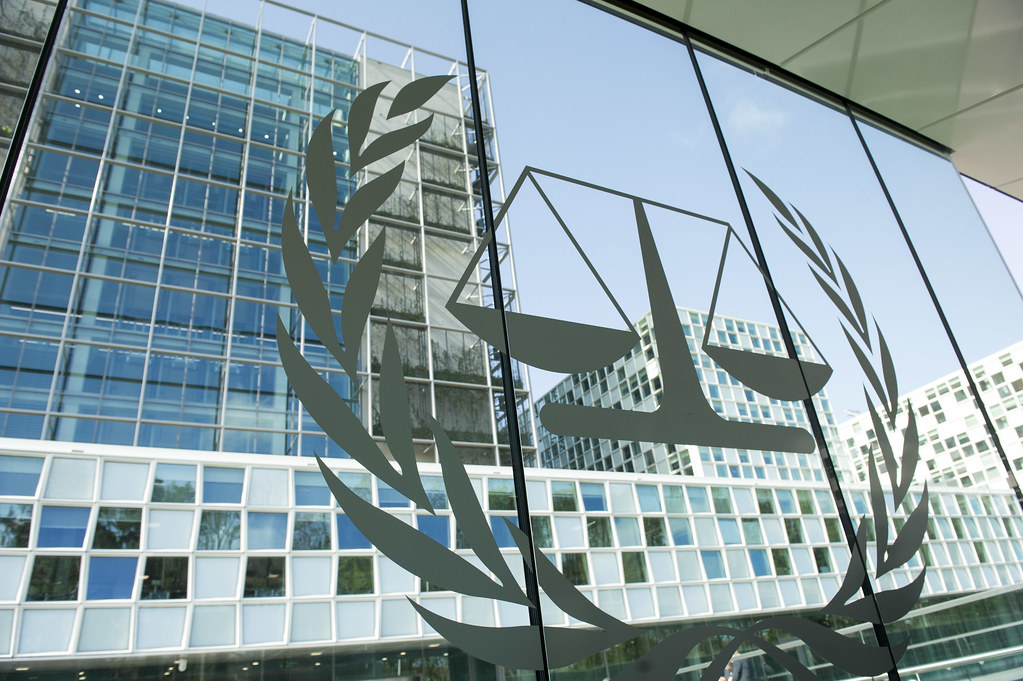Australia/Israel Review
Europa Europa: Courtroom Drama
Apr 6, 2021 | Douglas Davis

Four European states – Germany, the Czech Republic, Hungary and Austria – broke cover last month to publicly declare that they would oppose a planned investigation of Israeli activities in the Palestinian territories by the International Criminal Court (ICC). The four Europeans are in mostly good company among the international dissenters, with the United States, Canada, Australia, Brazil and Uganda. More are expected to announce their opposition.
Israel’s Attorney-General, Avichai Mandelblit, expressed Israel’s reaction to the court’s decision: “According to the Oslo Accords, there is no State of Palestine, it doesn’t have the jurisdiction to judge Israelis. This is an unfortunate and mistaken decision.” Mandelblit added: “This court was established to investigate atrocities… Israel does not commit atrocities; we have laws of war, we have a glorious judiciary of world renown.”
German Foreign Minister Heiko Maas spoke for most European dissenters when he expressed opposition to the court’s decision, noting that: “Our legal view on jurisdiction of the ICC… remains unchanged. The court has no jurisdiction, because of the absence of the element of Palestinian statehood required by international law.”
Canadian Foreign Minister Marc Garneau noted that, “the creation of a Palestinian state can only be achieved through direct negotiations between the parties. Until such negotiations succeed, Canada’s longstanding position remains that it does not recognize a Palestinian state and therefore does not recognize its accession to the ICC.”
Meanwhile, US Vice President Kamala Harris reaffirmed her country’s opposition to an ICC investigation. In a telephone call with Israeli Prime Minister Binyamin Netanyahu, she expressed opposition to the ICC’s attempts to exercise its jurisdiction over Israelis. She also emphasised Washington’s “unwavering commitment to Israel’s security.”
ICC judges angered Israel last month when they declared that the court’s jurisdiction extended to the West Bank and Gaza Strip, potentially clearing the way for the prosecutor to open an investigation into Israeli military actions and the construction of settlements in the West Bank and east Jerusalem.
Netanyahu dubbed the decision a “perversion of justice”. It was, he added, “the epitome of antisemitism and hypocrisy.”
Similarly, Israel’s President Reuven Rivlin called the decision to investigate Israel “scandalous… we will not accept claims against the exercise of our right and our obligation to defend our citizens.”
At the same time, the Palestinian Authority praised the court’s decision to investigate Israel, saying that it would be ready to provide “any assistance required … to realise justice for the Palestinian people.”
The Palestinians in Ramallah might have rejoiced at the news that the ICC was planning to investigate supposed Israeli war crimes, but they are likely to find, as they have found in the past, that such nugatory and declarative ICC decisions will not advance their cause by a single iota.
The undergraduate style of political chicanery, which is the hallmark of the ICC, is also the operating principle of its erstwhile sibling, the UN Human Rights Council (UNHRC). Since its inception in 2006, the UNHRC has adopted resolutions condemning countries on 171 occasions – 90 of which targeted Israel. The terror-supporting, human rights abusing regime in Teheran has received a mere 10, while such states as China, Russia, Pakistan and Zimbabwe have received none.
The ICC decision to go after Israel again comes on the eve of the retirement of the court’s Chief Prosecutor, Fatou Bensouda. In a statement, she declared that “any investigation undertaken by the office will be conducted independently, impartially and objectively, without fear or favour.”
Bensouda faced criticism from an independent investigation last year over her leadership of the ICC, including allegations of bullying and sexual harassment amongst staff under her watch. Some have speculated that, by pursing Israel, she might be trying to avoid scrutiny of her own role. According to one source, Bensouda “appears to be taking these inappropriate steps on her way out of the door in an effort to distract from her mismanagement of the ICC and, perhaps, to attempt to insulate herself from legal jeopardy by appealing to anti-US sentiments.”
In any case, Bensouda appears to be going beyond the ICC’s mandate to pursue both the United States and Israel, non-members of the ICC, for how they defended themselves against terrorism.
While Israel and several world powers – the United States, Russia, China and India – are not members of the ICC, any decisions by the court could make life difficult for officials and military leaders. The ICC does not put states on trial, but it can target political and military officials with international arrest warrants while they are travelling abroad.
Europeans are most strongly attached to the ICC, and there is likely to be a serious lobbying campaign to persuade Europe as a whole to recognise Palestine as a national state capable of securing the investigation, prosecution and indictment of Israel at the ICC.
On the other hand, the most effective way to counter the ICC’s illegal action may be to persuade European powers which oppose the move to simply defund the Court.
Tags: Europe, International Criminal Court, Israel






